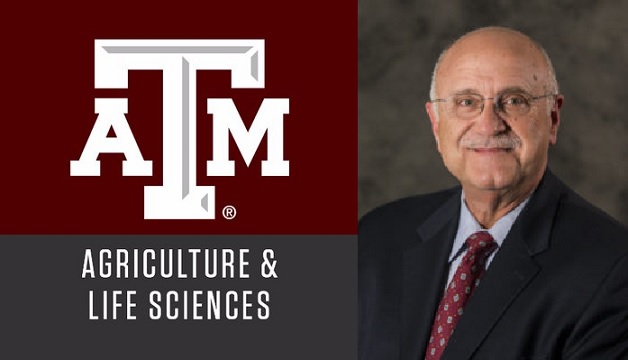
A career Aggie who has three degrees from Texas A&M is the university’s new dean of the college of agriculture and life sciences.
That’s after the board of regents held a special meeting Friday to unanimously approve the selection of Jeff Savell.
Regents chairman Tim Leach of Midland listed Dr. Savell’s many professional accomplishments at A&M since 1982.
That includes teaching more than 12,000 students.
Savell earned his bachelor’s, master’s, and doctoral degrees from A&M.
The regents appointment also makes him a system vice chancellor.
Click below to hear comments from Tim Leach and Jeff Savell from the June 3, 2022 board of regents meeting.
Listen to “Texas A&M's new dean of the agriculture college is a career long Aggie” on Spreaker.
News release from the Texas A&M system:
The Texas A&M University System’s Board of Regents today named a much-decorated professor, Jeffrey W. Savell ‘75, as Vice Chancellor and Dean of Agriculture and Life Sciences for Texas A&M.
Dr. Savell is a University Distinguished Professor, Regents Professor and the E.M. “Manny” Rosenthal Chair in the Department of Animal Science at Texas A&M University. He received his B.S., M.S. and Ph.D. degrees from Texas A&M.
His appointment is effective June 6.
“Dr. Savell is a great Aggie who is well-respected within academia and the agricultural community,” said Chancellor John Sharp. “An added bonus – he makes pretty good barbecue!”
Dr. Savell teaches the introductory course in meat science as well as a freshmen class on Texas barbecue. He also leads a graduate course in carcass composition and quality, and team-teaches a graduate and undergraduate course in Hazard Analysis Critical Control Point.
A past president of the American Meat Science Association, Dr. Savell is a member of the Meat Industry Hall of Fame.
“Dr. Savell is a highly recognized scholar who has been identified among the top 2% of most-cited researchers in the world,” said Texas A&M President M. Katherine Banks. “His impact and long tenure at Texas A&M includes teaching 12,000 Aggies and producing 150 graduate students who have become leaders in academia, industry and government.”
